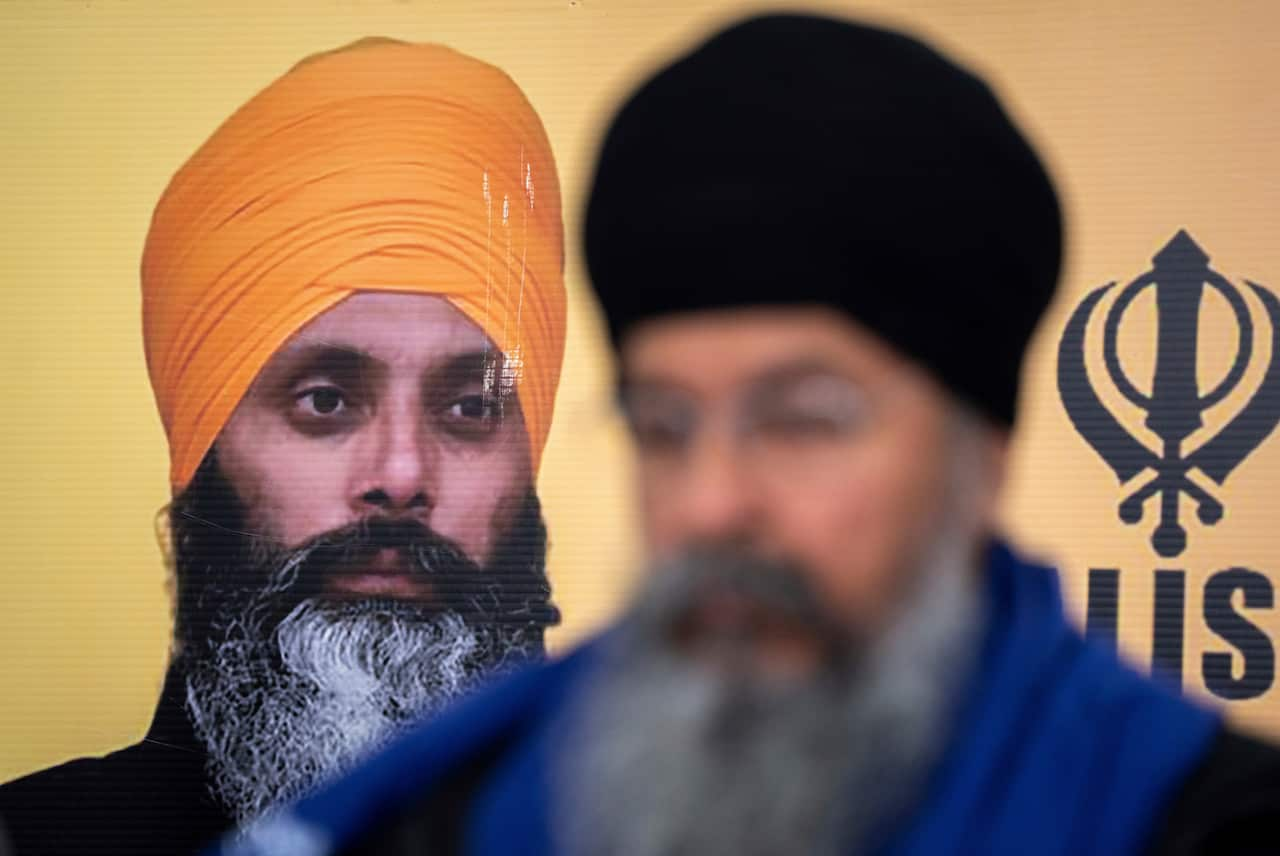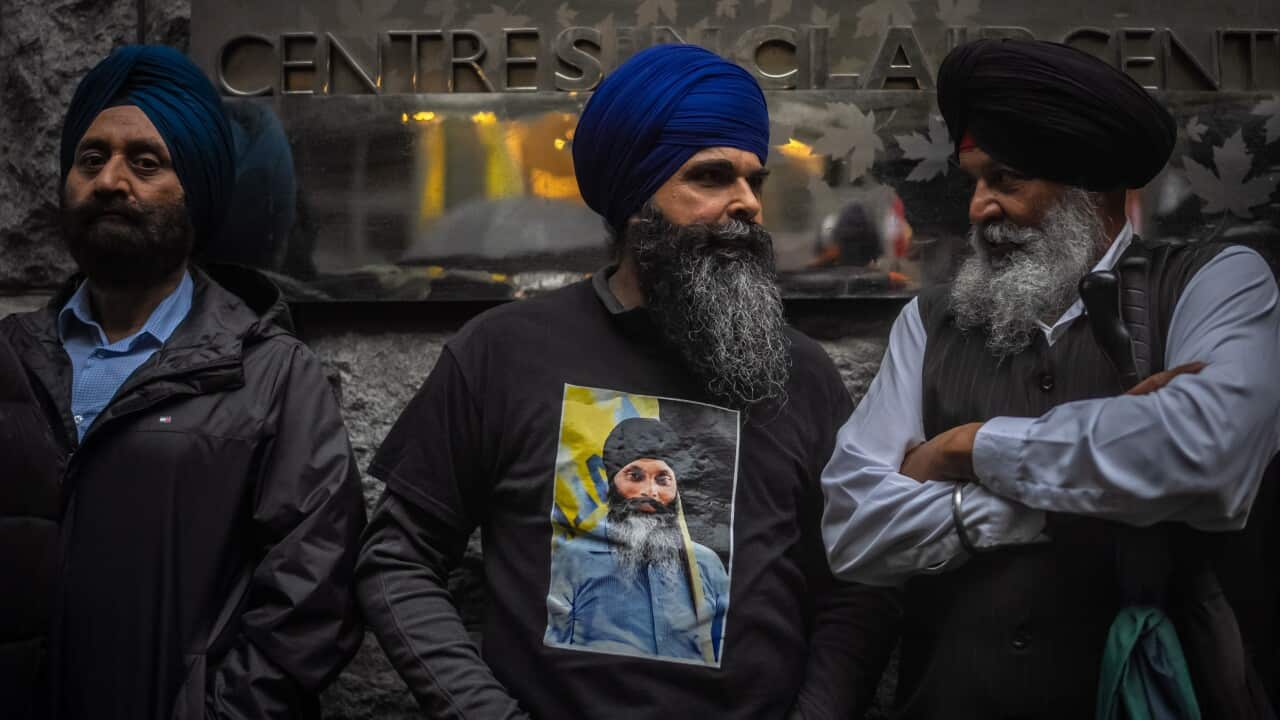Key Points
- India and Canada expelled each other’s top diplomats amid rising tensions over Hardeep Singh Nijjar’s murder.
- India says its diplomats were withdrawn while Canada says they were expelled over the assassination row.
- Hardeep Singh Nijjar advocated for a separate Sikh state, known as Khalistan, to be carved out of India.
Canada’s Prime Minister Justin Trudeau accused India on Monday of making a “fundamental error”, as an escalating row over the killing of a Sikh separatist on Canadian soil last year saw both countries expel each other’s ambassadors.
Trudeau labelled India’s actions as “unacceptable” during a press conference in Ottawa. He has previously said there were “credible allegations” linking Indian intelligence services to the murder of Canadian citizen Hardeep Singh Nijjar.
Both countries have traded barbs since then, culminating with the expulsions of each other’s ambassadors and five other top diplomats in both countries.
“The government of India made a fundamental error in thinking that they could engage in supporting criminal activity against Canadians here on Canadian soil, whether it be murders or extortion or other violent acts,” Trudeau told reporters in Ottawa, hours after the expulsions were announced.
“We will never tolerate the involvement of a foreign government threatening and killing Canadian citizens on Canadian soil, a deeply unacceptable violation of Canada’s sovereignty and of international law,” he said.
The expulsions came after India said its envoy had been named among “persons of interest” following the killing of Nijjar.
India “decided to expel” Ottawa’s acting high commissioner, Stewart Wheeler, his deputy and four first secretaries, ordering they leave before midnight on Sunday.
Canada announced similar measures in return, with the police saying they had “evidence pertaining to agents of the government of India’s involvement in serious criminal activity” in the country.
Canadian foreign minister Mélanie Joly said India had refused to cooperate in the investigation or to lift diplomatic immunity for its envoys.
“The decision to expel these individuals was made with great consideration and only after the RCMP gathered ample, clear and concrete evidence which identified six individuals as persons of interest in the Nijjar case,” she said in a statement, referring to the Royal Canadian Mounted Police.
Nijjar — who immigrated to Canada in 1997 and became a citizen in 2015 — , carved out of India.
He had been wanted by Indian authorities for alleged terrorism and conspiracy to commit murder.
Four Indian nationals have been arrested in connection with Nijjar’s murder, which took place in the parking lot of a Sikh temple in Vancouver in June 2023.
Hardeep Singh Nijjar was murdered in June 2023, sparking a diplomatic crisis between India and Canada. Source: AAP / Ethan Cairns
India had earlier said it had “received a diplomatic communication from Canada suggesting that the Indian High Commissioner and other diplomats are persons of interest” in the ongoing investigation.
It said their envoy, Sanjay Kumar Verma, a former ambassador to Japan and Sudan, was a respected career diplomat and that the accusations were “ludicrous”.
The Indian foreign ministry said it had told Verma to return home and that it had “no faith” in the Canadian government’s commitment to ensuring the six expelled diplomats’ security.
India denies allegations of involvement in Nijjar’s killing
India on Monday called allegations it was connected to the killing “preposterous” and a “strategy of smearing India for political gains.”
Last year, the Indian government briefly curbed visas for Canadians and forced Canada to withdraw diplomats, and threatened further action on Monday.
“India reserves the right to take further steps in response to the Trudeau Government’s support for extremism, violence and separatism against India,” the foreign ministry said.
The foreign ministry also summoned Canadian envoy Wheeler, who said that Canada had given India the evidence it had demanded.
“Canada has provided credible, irrefutable evidence of ties between agents of the Government of India and the murder of a Canadian citizen on Canadian soil,” Wheeler told reporters after leaving the ministry.
“It is in the interest of both our countries and the peoples of our countries to get to the bottom of this.”
India then announced Wheeler’s expulsion.
Canada is home to around 770,000 Sikhs, who make up about 2 per cent of the country’s population, with a vocal minority calling for an independent state of Khalistan.
“The Government of India’s ongoing foreign interference activities in Canada and its history of targeting Sikhs in this country is only now becoming known to the general public but has been the lived experience of Sikhs for the past four decades,” the World Sikh Organization said in a statement.
In November 2023, the United States justice department also charged an Indian citizen living in the Czech Republic with allegedly plotting a similar assassination attempt on US soil.
Prosecutors said in unsealed court documents that an Indian government official was also involved in the planning of that attempt.

